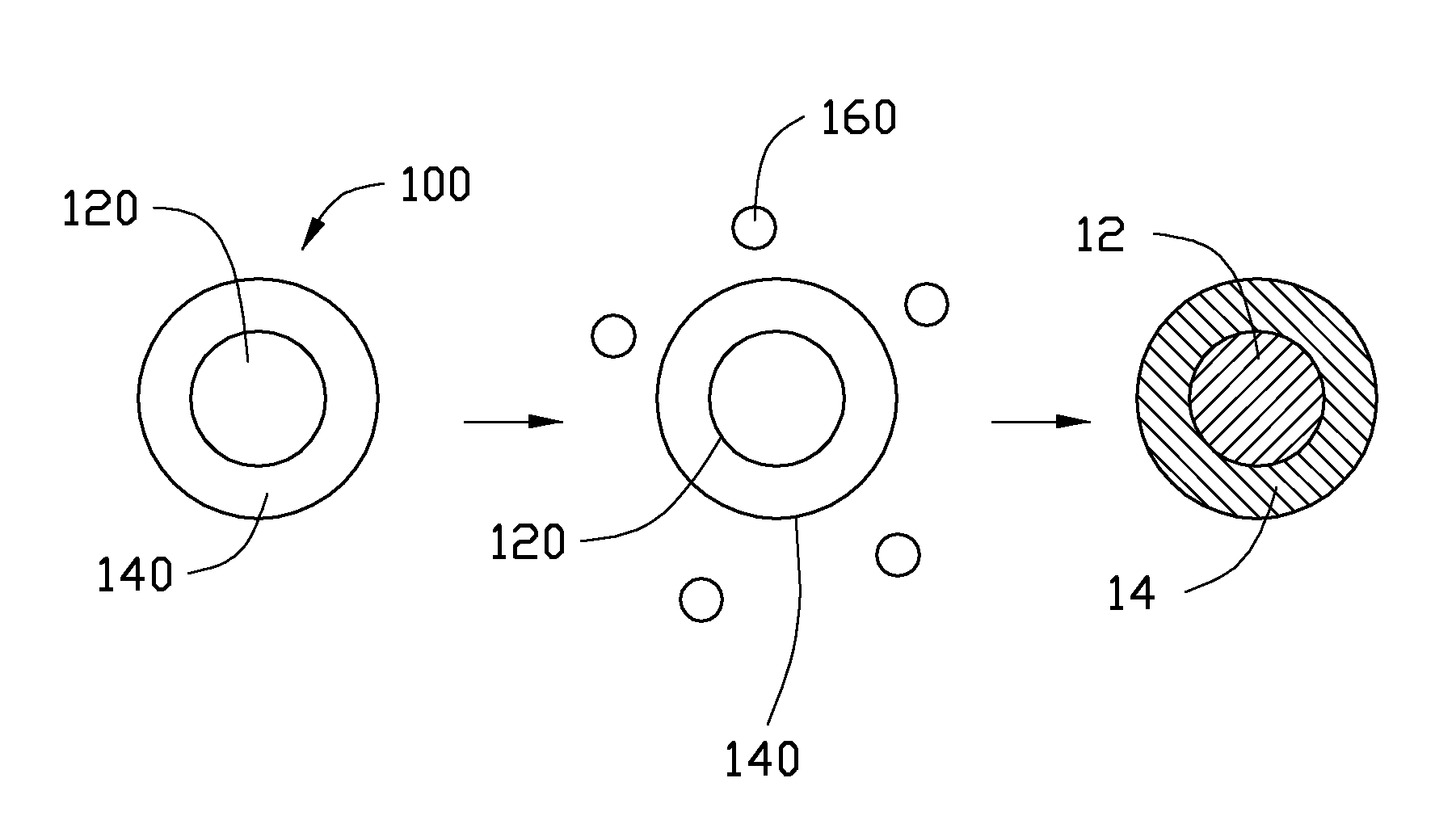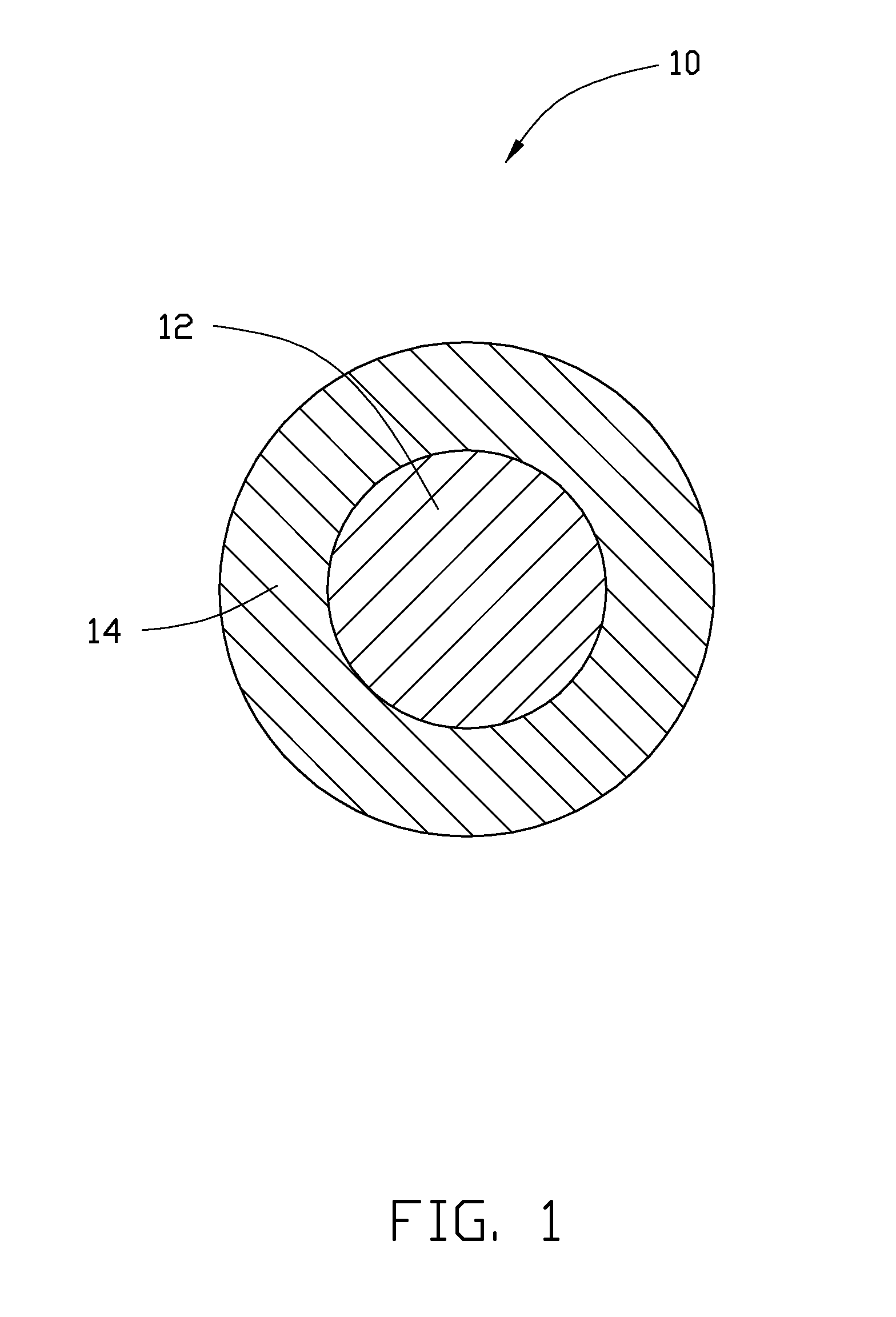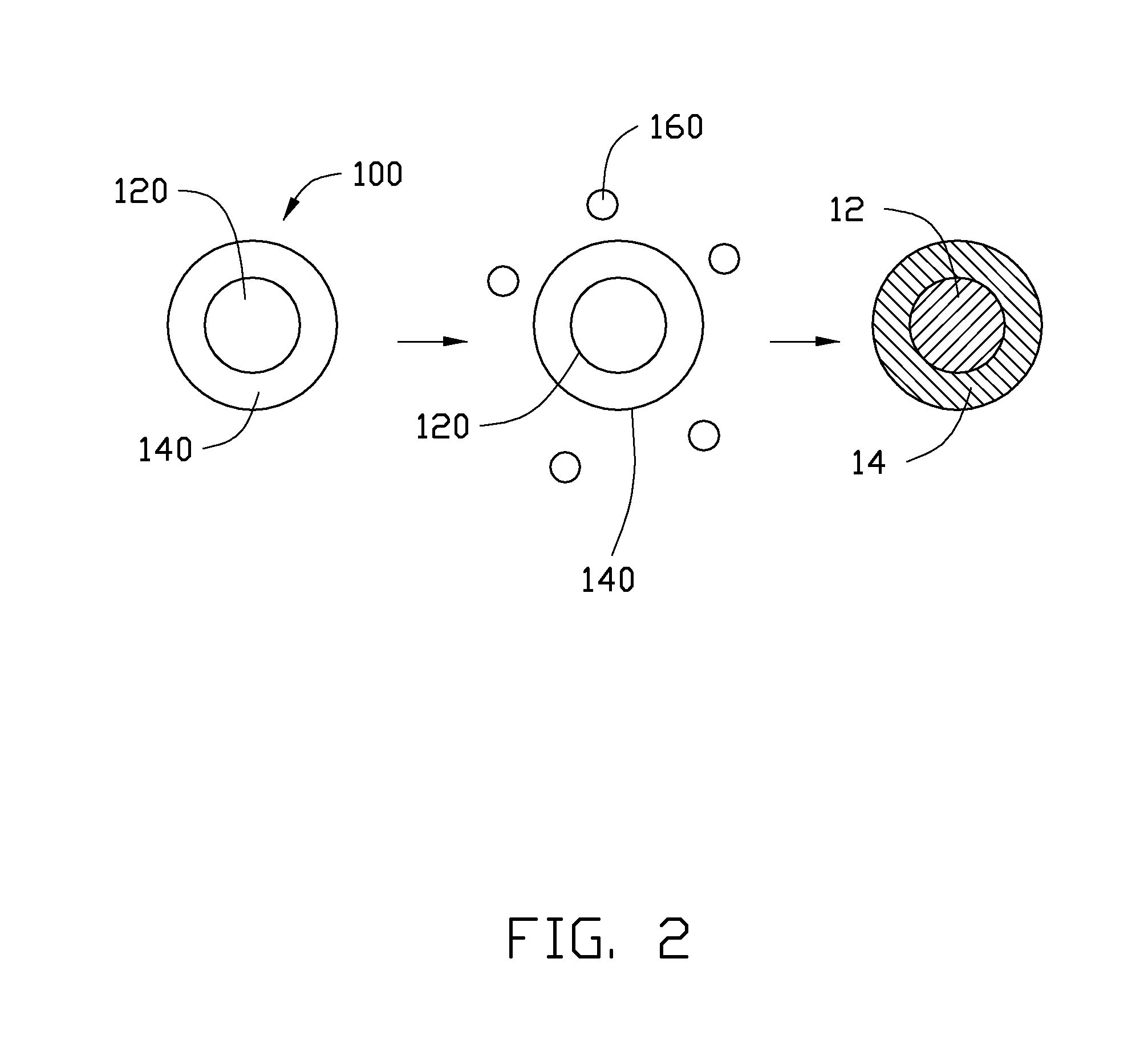Cathode composite material and lithium ion battery using the same
a lithium ion battery and composite material technology, applied in the direction of non-aqueous electrolyte accumulator electrodes, sustainable manufacturing/processing, climate sustainability, etc., can solve the problems of lithium ion batteries experiencing capacity loss, poor cycling life, and capacity loss during cycling
- Summary
- Abstract
- Description
- Claims
- Application Information
AI Technical Summary
Benefits of technology
Problems solved by technology
Method used
Image
Examples
example 1
[0065]In Example 1, 0.25 g Co(OH)2 is ultrasonically dispersed in 10 mL of ethanol to achieve the solid-liquid mixture. Then, the tetrabutyl titanate is added into the solid-liquid mixture. A molar ratio between the tetrabutyl titanate and the Co(OH)2 is about 1:10. After adding the tetrabutyl titanate, the solid-liquid mixture is continuously ultrasonically vibrated to uniformly mix the tetrabutyl titanate and the Co(OH)2 in the ethanol. After that, the solid-liquid mixture is transferred into a dry and clean hydrothermal autoclave and reacted at about 150° C. for about 3 hours. After the hydrothermal synthesis, the amorphous TiO2 layer can be formed on the surface of the Co(OH)2, to form the composite precursor. The composite precursor and the LiOH.H2O are mixed in the stoichiometric ratio and are dried to remove the residual ethanol. Then the mixture of the composite precursor and the LiOH.H2O are heated to about 800° C. at a temperature increasing rate of about 3° C. / min, and is...
example 2
[0070]In Example 2, the cathode composite material is prepared using the same method as in Example 1, except that the Co(OH)2 is replaced by CoC2O4.xH2O.
example 3
[0071]In Example 3, the cathode composite material is prepared using the same method as in Example 1, except that the tetrabutyl titanate is replaced by zirconium n-butoxide. After the hydrothermal synthesis, the amorphous ZrO2 layer can be formed on the surface of the Co(OH)2, to form the composite precursor. After the lithiating step, the cathode composite material is the core-shell structure having LiCoO2 as the core and Co doped Li2ZrO3 as the shell.
PUM
 Login to View More
Login to View More Abstract
Description
Claims
Application Information
 Login to View More
Login to View More - R&D
- Intellectual Property
- Life Sciences
- Materials
- Tech Scout
- Unparalleled Data Quality
- Higher Quality Content
- 60% Fewer Hallucinations
Browse by: Latest US Patents, China's latest patents, Technical Efficacy Thesaurus, Application Domain, Technology Topic, Popular Technical Reports.
© 2025 PatSnap. All rights reserved.Legal|Privacy policy|Modern Slavery Act Transparency Statement|Sitemap|About US| Contact US: help@patsnap.com



